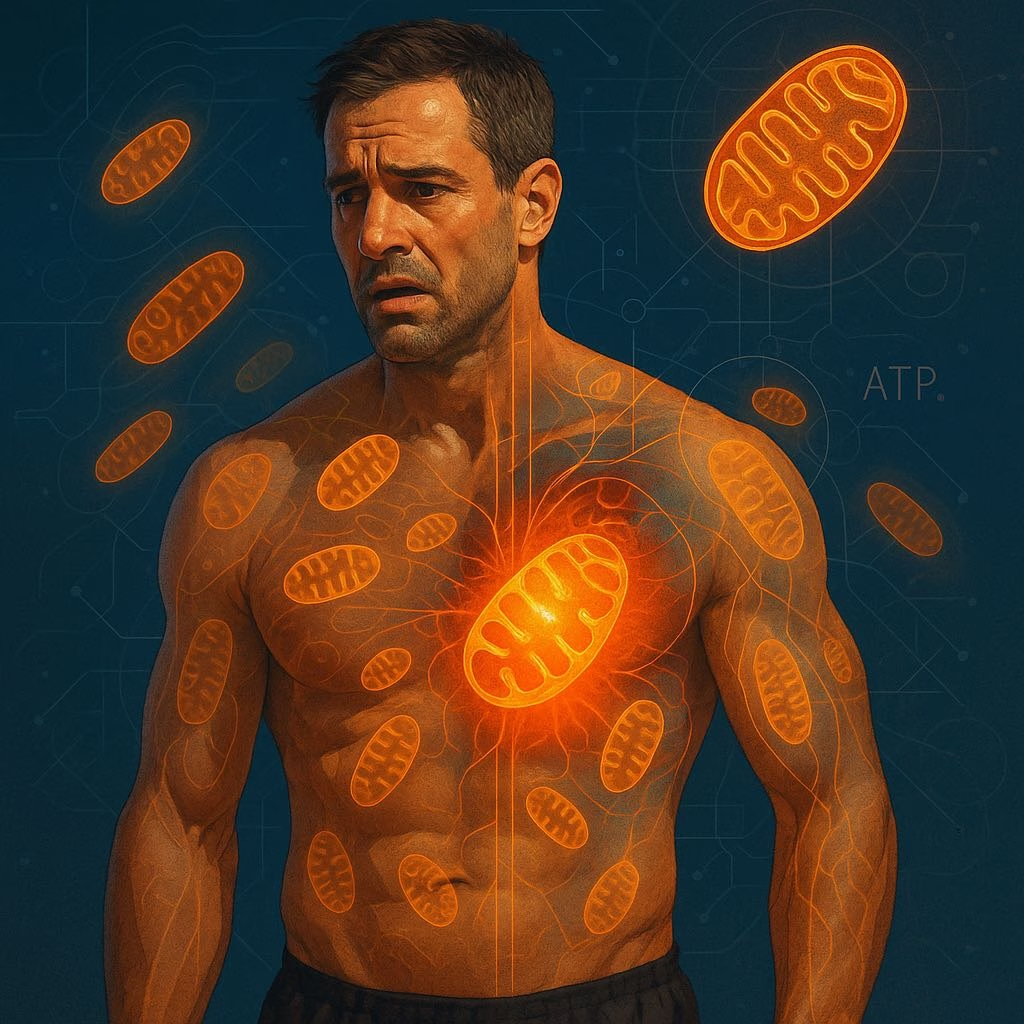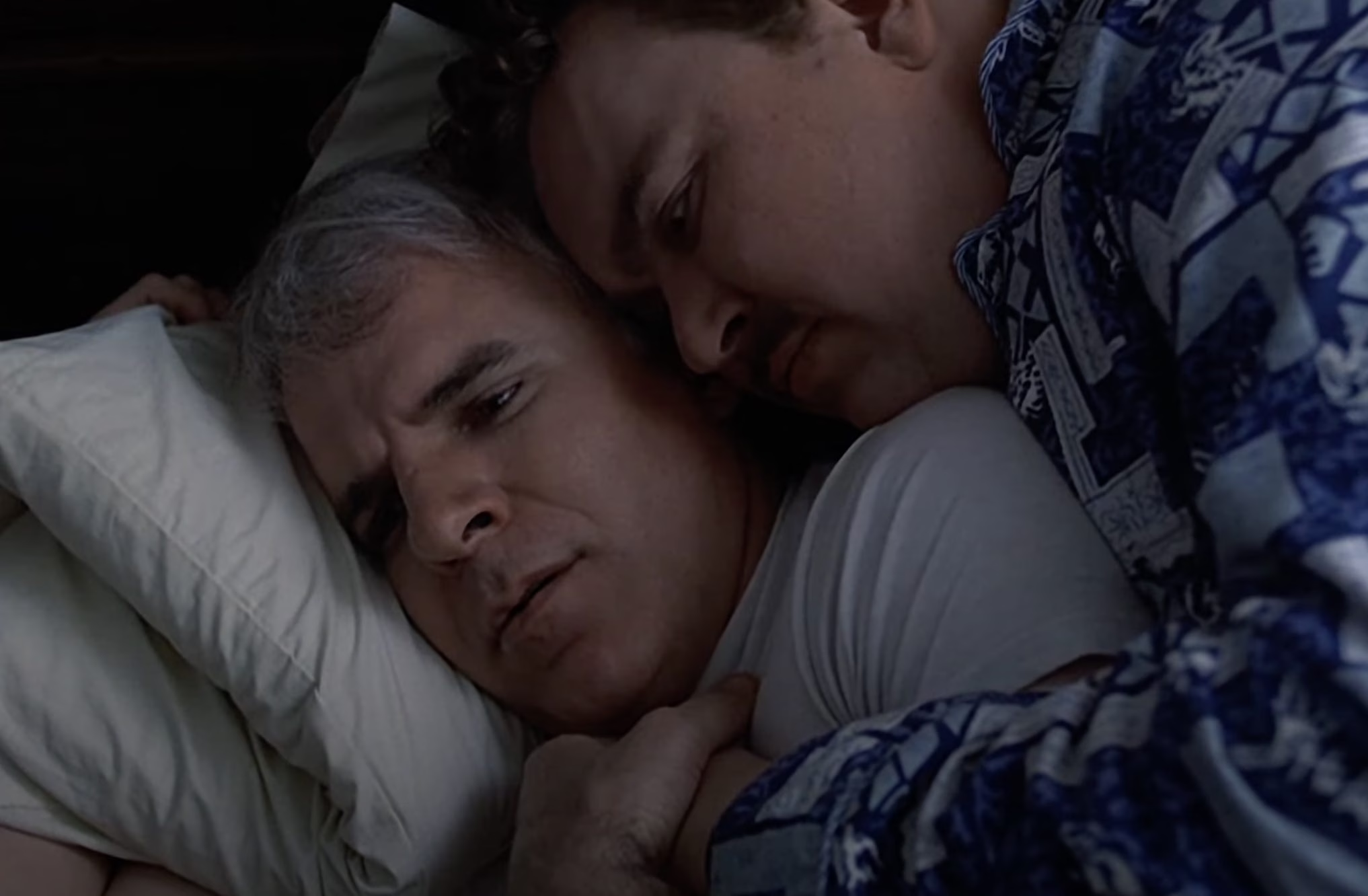Despite maintaining a balanced diet, regular exercise, healthy blood pressure and cholesterol levels, I see many Australians in my line of work who say that they are more tired than ever and– overall – not landing their health and fitness goals.
From a big-picture perspective, there may be more happening deep inside your cells contributing to this. As an Integrative Cardiologist with decades of experience supporting men’s heart health, I want to use Men’s Health Week to spotlight an important but overlooked factor in men’s wellbeing: mitochondrial decline.
What are mitochondria and why should you care?
Think of mitochondria as the engines inside your cells. Their main job? Producing energy in the form of ATP (adenosine triphosphate)—the fuel that powers everything from brain function to muscle contraction. Your heart, in particular, is a mitochondrial powerhouse. Each cardiac cell contains 5,000 to 8,000 mitochondria, working around the clock to keep your blood pumping and your body functioning.
But here’s the catch: as we age, our mitochondria naturally become less efficient and we suffer mitochondrial decline. That means less energy, more fatigue, and lower resilience when life gets busy.

The silent mitochondrial decline that saps your stamina
A recent review in Mechanisms of Ageing and Development has brought attention to a process called mitochondrial decline, where the body’s energy factories gradually lose their spark. When mitochondrial output declines, it may trigger inflammation and accelerate the cellular ageing of your heart and blood vessels, which is a phenomenon now known as inflammaging.
In simple terms: the fire that fuels your engine is burning out. And that affects everything from how you recover from a long run, to how well you handle stress, to the health of your heart over time.
What helps? It’s not about hacks – it’s about habits
You don’t need extreme routines or expensive hacks to support your mitochondrial health. I believe 90 percent of modern health conditions are completely preventable—and the fundamentals still reign supreme. One of the most compelling recent trials showed that applying basic lifestyle principles can reduce the risk of all health conditions by 70 percent, and cardiovascular events by up to 83 percent. That’s two to three times more powerful than taking a pill to lower your cholesterol or control your blood pressure.
In my book The Five Stages of Health, I outline the core lifestyle pillars that make the greatest impact on prevention and longevity. These five keys to good health remain the foundation of my approach:
• Quit all addictions – Whether it’s smoking, alcohol or sugar, eliminating addictive behaviours frees up your body to restore itself.
• Prioritise sleep – 7 to 8 hours of quality sleep is as good for your body as not smoking. Restorative sleep is crucial for cellular repair and energy regulation.
• Nutrition – Eat less and eat more naturally. A diet rich in whole foods supports oxidative balance and fuels your mitochondria.
• Exercise – Aim for 3 to 5 hours per week of movement in any form. Moderate, regular exercise helps stimulate mitochondrial biogenesis – the growth of new mitochondria.
• Happiness – There’s no doubt about it: happiness is the best drug on the planet. Managing stress, cultivating joy and strong social connections all support heart and mitochondrial health.
And if you’re still feeling persistently fatigued, get checked. Your symptoms may require further investigation beyond the standard blood panel.
It’s not about doing more. It’s about doing the right things consistently.
What about Ubiquinol?

One compound that plays a key role in this cellular engine is Ubiquinol, a naturally occurring antioxidant found in the body involved in energy production within the cells. It plays a central role in the mitochondrial electron transport chain, which is the process responsible for generating ATP, the body’s main energy currency. Ubiquinol is particularly concentrated in organs with high energy requirements, such as the heart.
Ubiquinol levels in the mitochondria start to decline naturally after the age of 20 as the body’s natural production of Ubiquinol decreases and the cells are exposed to higher levels of oxidative stress. This impacts the energy production in the cells of our body and affects our mitochondrial health.
There is a significant body of evidence behind this natural powerhouse as well, with over 100 studies showing a correlation between the Ubiquinol levels in our bodies, mitochondrial function and health concerns, such as energy production and cardiovascular conditions.
For energy production specifically, multiple studies have shown that Ubiquinol may support fatigue and exercise recovery – with the potential to lower the degree of inflammation in muscles after intense physical exercise.
Ongoing research continues to investigate its role in cellular energy metabolism and cardiovascular health.
The bottom line
If you’re doing everything right but still feel like you’re running on half a tank, don’t ignore it. Energy isn’t just about sleep and protein shakes; it starts in your cells. And your heart, muscles and mind rely on efficient mitochondrial function to support your fitness goals and general health and wellbeing.
You can’t stop the clock. But by understanding how your body works and making small, consistent changes, you can power up from within.
Consult your healthcare practitioner for lifestyle and dietary protocols.
Dr Ross Walker is an integrative cardiologist with over 45 years’ experience. He is the author of seven books and a leading voice in preventative heart health. He runs the Sydney Heart Health Clinic and is a keynote speaker at the Natural Health Products New Zealand Summit this June.




